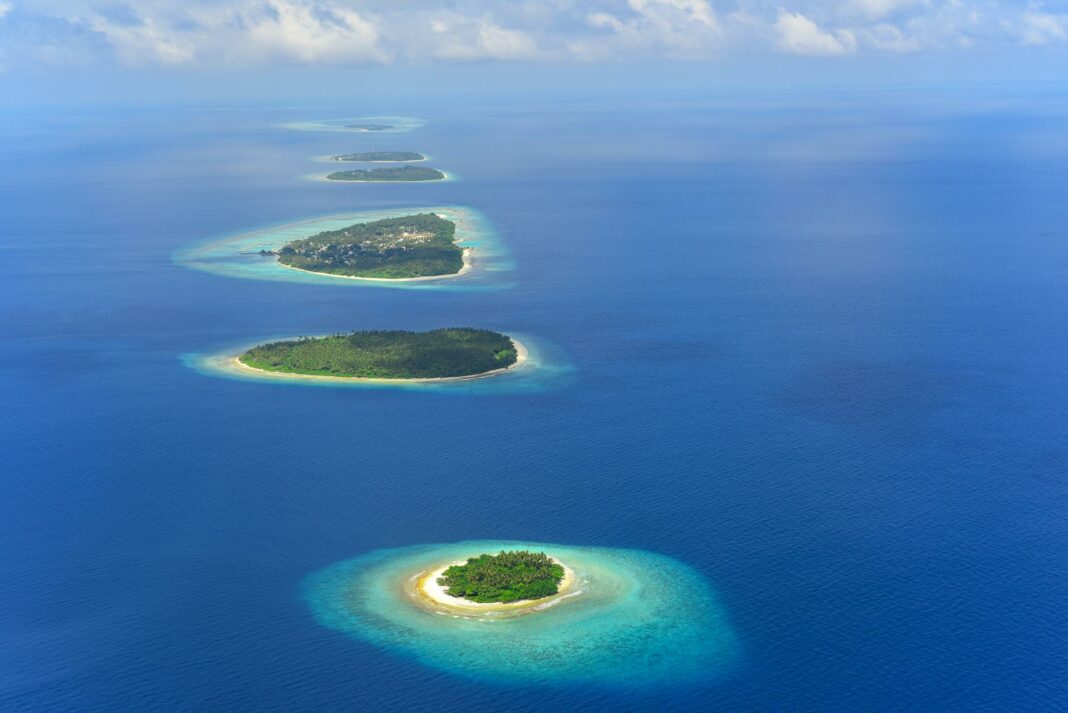Island hopping represents a truly exhilarating way to engage with nature while enriching your travel experiences. By exploring a series of stunning islands, adventurous spirits can discover unspoiled beaches, lively marine ecosystems, and unique cultures. Each island offers a piece of paradise, and the journey allows for a diverse range of ecological discoveries that underscore our planet’s beauty. As eco-tourism grows in popularity, island hopping stands out as a top choice, blending adventure with an opportunity to support sustainable practices.
In this blog post, we’ll dive into the reasons why island hopping could be dubbed the ultimate eco-tourism adventure destination. It’s not just about scanning a list of islands to visit; it’s a holistic approach that invites travelers to connect with nature, engage with local communities, and promote preservation efforts. Get ready to explore the enchanting world of islands that beckon to adventurers eager to leave a minimal footprint while collecting unforgettable memories.
Eco-tourism interlaces seamlessly with the experience of island hopping. It invites individuals to enjoy nature while actively championing conservation efforts. Imagine glide over turquoise waters, discovering islands that are more than mere vacation spots; they are sanctuaries of biodiversity. This travel style encourages physical engagement with the environment while promoting respect and admiration for the ecosystems diversified over generations. Each island serves as a testament to nature’s resilience and prompts an awareness of our role in preserving these treasures.
Through well-structured, eco-oriented tours and programs, visitors gain insights regarding local flora and fauna, their fragility, and the surrounding ecosystems. Every footstep leaves a smaller carbon footprint when travelers choose eco-friendly options, like kayaking or sailing instead of power-boating. This mindful travel approach allows for deeper connections with nature and a sense of integrity, knowing that exploration is achieved responsibly.
Each island presents a unique chapter in the biodiversity book of our planet. From lush rainforests teeming with life to vibrant coral reefs bustling with color, island hopping offers unparalleled opportunities to engage with varied ecosystems. Picture snorkelling among schools of fish in crystal-clear waters or taking an exhilarating hike through dense jungles, humming with the sounds of countless species. These experiences enlighten travelers about the remarkable diversity that exists just a short boat ride away.
Moreover, the exposure to these breathtaking landscapes ignites a passion for environmental stewardship. Witnessing the dynamics of these fragile ecosystems firsthand nurtures an understanding that encourages responsible behaviors. As travelers witness changes in environments, whether due to climate shifts or human activities, they are inspired to play an active role in conservation efforts, ensuring that future generations can share similar experiences.
Island hopping isn’t solely about the natural environment; it also offers a rich tapestry of cultural experiences. Each island boasts a unique history, traditions, and ways of life. By immersing yourself in the local culture—be it through sampling authentic dishes, participating in traditional ceremonies, or learning about age-old craft techniques—you engage in a narrative that transcends language and borders. These connections foster appreciation and respect for differing ways of living.
The practice of engaging with local communities can uplift economies that rely on tourism while safeguarding cultures at risk of being overshadowed by commercialization. When travelers prioritize genuine experiences over cookie-cutter tourist traps, they fuel sustainable tourism, which enhances local heritage and promotes mutual understanding between visitors and residents.
In the realm of eco-tourism, sustainable practices play a significant role, and island hopping aligns beautifully with them. Tour operators engaged in responsible tourism commonly employ methods that minimize environmental impacts. By reducing waste, practicing conservation, and offering immersive educational tours, they contribute to maintaining the integrity of these exquisite islands.
As you set sail from one island to another, look for operators that embrace renewable energy solutions and eco-friendly vessels. Community-driven initiatives are abundant, providing opportunities for visitors to get involved in conservation or preservation projects. Choosing local accommodations and supporting small businesses not only enriches the travel experience but also creates influence towards sustainable practices across the islands.
Is there anything more thrilling than hopping from one tropical paradise to another? The unpredictability of island hopping sparks excitement; every stop unveils new adventures waiting to be discovered. Whether navigating through secluded coves or traversing rugged trails amidst misty mountains, each moment enhances a sense of freedom and discovery. As travelers embark on spontaneous excursions, they unlock the beauty of uncharted territories.
This lifestyle fosters a spirit of adventure which inspires exploration beyond traditional vacations. With each island revealing hidden treasures, adventurers are prepped for unforgettable memories and limitless possibilities. And who can resist the thrill of chasing waterfalls, hiking dormant volcanoes, or basking in virgin sands on uninhabited islands? The appeal lies not only in witnessing nature’s marvels but also in forging bonds with fellow travelers in collectively shared experiences.
Stepping into the world of island hopping is embracing an extraordinary journey. The allure lies not solely in the destinations but also in the connections forged along the way. As travelers set off to navigate shimmering waters or trek untouched landscapes, they become part of a community that values adventure and nature. The mental and emotional rejuvenation attained during this unique adventure offers healing and strength, providing each traveler with lifetime stories and memories.
<pMoreover, itineraries filled with spontaneity often unlock unforeseen experiences—unexpected encounters with local people, participating in casual potlucks, or listening to lore under starlit skies. These moments enrich journeys far surpassing traditional resorts and cookie-cutter vacations. Truly, the spirit of island hopping encapsulates the essence of adventure, steeping travelers deeply into the remarkable cycle of exploration.
Island hopping generates awareness concerning the tremendous value of nature and motivates responsibility towards conservation practices. Experiencing the vibrant ecosystems firsthand instills respect and fosters a deeper appreciation for the natural world. Conversations sparked while snorkeling alongside turtles or watching dolphins leap from waves become meaningful reflections on humanity’s role in protecting these wonders.
Every narrative shared among travelers hones in on the importance of integrating conservation efforts into everyday lifestyles. As people return home, the resonance of their travels often ignites advocacy for preserving our planet’s beauty. Through education, outreach, and respectful exploration, the stories originating from island hopping can foster collective action towards the crucial goal of sustaining the environments we cherish.
Embracing responsible travel ensures the future viability of island hopping as a sustainable tourism choice. Travelers can make conscious decisions by seeking out eco-friendly operators and supporting businesses committed to preserving cultural and natural resources. Each choice, from opting for organic cuisine to participating in eco-initiatives, fosters responsibility in every stage of the journey.
Furthermore, travelers have the power to raise awareness surrounding the need for conservation as they share their experiences. Encouraging responsible behaviors through recommendations, blogging, and social media can amplify the message exponentially. Thus, each adventure not only promises personal enrichment but can also ripple through communities, inspiring others to join the responsible travel movement.
Island hopping emerges as a compelling pathway to experience our world’s wondrous diversity while simultaneously nurturing the environment. Engaging with nature, celebrating cultural richness, and advocating for sustainability meld into an enriching adventure, offering travelers exceptional moments to cherish for a lifetime. The intricate relationship between tourism and preservation fosters a future where eco-friendly practices weaves into the fabric of travel, ensuring that pristine destinations endure.
In exploring the captivating realms of island hopping, every traveler can become an advocate for change, creating a legacy rooted in respect for the environment and local cultures. What begins as a personal adventure can inspire a global movement, empowering individuals to change how we engage with our beautiful planet. The journey evolves into a shared responsibility, inviting each voice to impact the conservation of the unique ecosystems waiting to be admired.
What is island hopping?
Island hopping refers to traveling between multiple islands, typically in a specific region, to explore their unique characteristics, cultures, and environments.
Why is island hopping eco-friendly?
This travel approach encourages responsible exploration while raising awareness about conservation, minimizing the ecological footprint, actively participating in preserving local ecosystems, and supporting sustainable businesses.
How can I prepare for an island hopping trip?
Research your destinations, plan eco-friendly activities, pack light, embrace flexibility in your itinerary, and remain open to emerging adventures and experiences.
Are there specific islands known for eco-tourism?
Yes, many islands around the world prioritize eco-tourism, such as the Galapagos Islands, the Greek Islands, and Fiji, where sustainable practices are incorporated into the tourism framework.
Can you recommend eco-friendly activities during island hopping?
Consider participating in snorkeling tours, wildlife observation, guided hikes, cultural immersion sessions, and volunteering opportunities that support conservation efforts.
Image Credit: Pexels





